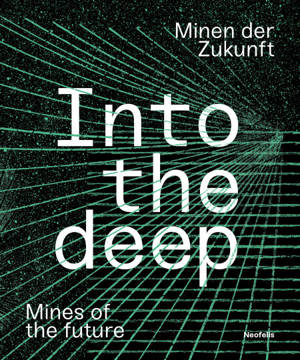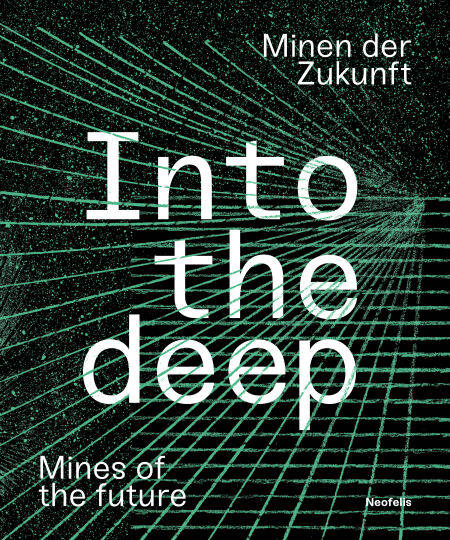
- Retrait en 2 heures
- Assortiment impressionnant
- Paiement sécurisé
- Toujours un magasin près de chez vous
- Retrait gratuit dans votre magasin Club
- 7.000.0000 titres dans notre catalogue
- Payer en toute sécurité
- Toujours un magasin près de chez vous
Into the deep EBOOK
Ignacio Acosta, Agnes Bidmon, Jürgen Bleibler, Léonore Bonaccini, Bureau d'études, Michael David, El Laboratorio de Artes Gráficas del Desierto de Atacama (LAGDA), Claudia Emmert, Xavier Fourt, Charlotte Ickler, Armin Linke, Ina Neddermeyer, Kristina Õllek, Bethany Rigby, Frauke Stengel, Caroline Wind
Ebook | Anglais, Allemand
20,00 €
+ 20 points
Description
Der Abbau von Rohstoffen entwickelt sich in den letzten Jahrzehnten immer stärker zu einem ökologischen, ökonomischen, politischen und sozialen Problem mit globalen Auswirkungen. Extensive Abbaupraktiken und die Ausbeutung von Öko- und Sozialsystemen stellen eine der größten Umweltbelastungen unserer Zeit dar. Ihre Folgen sind vielerorts dramatisch, dennoch wird der Kampf um Ressourcen unvermindert fortgeführt. Da die Ressourcen auf der Erde endlich sind, wird nach immer neuen, teils surreal anmutenden Standorten gesucht, so wie beim Deep Sea Mining und Deep Space Mining.
Into the deep wirft einen kritischen Blick auf die Geschichte und Gegenwart der Extraktion von Rohstoffen, die untrennbar mit Umweltzerstörung und Kolonialismus verbunden ist. Die vielschichtigen Zusammenhänge des Rohstoffabbaus in der Tiefsee und im Weltall werden beleuchtet, ebenso wie Formen von Widerstand und Aktivismus gegen die Ausbeutung von Menschen und Umwelt. In Anlehnung an die Industriegeschichte Friedrichshafens gerät zudem der Rohstoff Aluminium in den Fokus, das Metall des Fliegens, das bei seiner energieaufwändigen Gewinnung aus dem Gestein Bauxit neben Umweltschäden auch das giftige Abfallprodukt Rotschlamm verursacht.
Mit Beiträgen von Ignacio Acosta, Agnes Bidmon, Jürgen Bleibler, Bureau d'études (Léonore Bonaccini & Xavier Fourt), Michael David, El Laboratorio de Artes Gráficas del Desierto de Atacama (LAGDA), Claudia Emmert, Charlotte Ickler, Armin Linke, Ina Neddermeyer, Kristina Õllek, Bethany Rigby, Frauke Stengel und Caroline Wind.
***
In recent decades, the extraction of raw materials has increasingly developed into an ecological, economic, political, and social problem of global proportions. Large-scale mining operations and the exploitation of ecological and social systems are one of the most serious threats facing the environment today. In many places, the effects are catastrophic and yet the fight over resources continues unabated. Since the resources on Earth are finite, there is a constant search for new mining sites that sometimes seem surreal, such as with deep-sea mining and deep-space mining.
Into the deep takes a critical look at the history and present of the extraction of resources, which are inextricably linked to environmental destruction and colonialism. The many-layered complexities of mining for raw materials in the deep sea and in space are examined, as well as forms of resistance and activism against the exploitation of people and the environment. Drawing on Friedrichshafen's history of industrialism, the exhibition also focuses on the raw material aluminium, the metal of flight, which requires large amounts of energy to be extracted from the rock bauxite and not only causes environmental damage, but also produces the toxic waste product red mud.
With contributions by Ignacio Acosta, Agnes Bidmon, Jürgen Bleibler, Bureau d'études (Léonore Bonaccini & Xavier Fourt), Michael David, El Laboratorio de Artes Gráficas del Desierto de Atacama (LAGDA), Claudia Emmert, Charlotte Ickler, Armin Linke, Ina Neddermeyer, Kristina Õllek, Bethany Rigby, Frauke Stengel, and Caroline Wind.
Into the deep wirft einen kritischen Blick auf die Geschichte und Gegenwart der Extraktion von Rohstoffen, die untrennbar mit Umweltzerstörung und Kolonialismus verbunden ist. Die vielschichtigen Zusammenhänge des Rohstoffabbaus in der Tiefsee und im Weltall werden beleuchtet, ebenso wie Formen von Widerstand und Aktivismus gegen die Ausbeutung von Menschen und Umwelt. In Anlehnung an die Industriegeschichte Friedrichshafens gerät zudem der Rohstoff Aluminium in den Fokus, das Metall des Fliegens, das bei seiner energieaufwändigen Gewinnung aus dem Gestein Bauxit neben Umweltschäden auch das giftige Abfallprodukt Rotschlamm verursacht.
Mit Beiträgen von Ignacio Acosta, Agnes Bidmon, Jürgen Bleibler, Bureau d'études (Léonore Bonaccini & Xavier Fourt), Michael David, El Laboratorio de Artes Gráficas del Desierto de Atacama (LAGDA), Claudia Emmert, Charlotte Ickler, Armin Linke, Ina Neddermeyer, Kristina Õllek, Bethany Rigby, Frauke Stengel und Caroline Wind.
***
In recent decades, the extraction of raw materials has increasingly developed into an ecological, economic, political, and social problem of global proportions. Large-scale mining operations and the exploitation of ecological and social systems are one of the most serious threats facing the environment today. In many places, the effects are catastrophic and yet the fight over resources continues unabated. Since the resources on Earth are finite, there is a constant search for new mining sites that sometimes seem surreal, such as with deep-sea mining and deep-space mining.
Into the deep takes a critical look at the history and present of the extraction of resources, which are inextricably linked to environmental destruction and colonialism. The many-layered complexities of mining for raw materials in the deep sea and in space are examined, as well as forms of resistance and activism against the exploitation of people and the environment. Drawing on Friedrichshafen's history of industrialism, the exhibition also focuses on the raw material aluminium, the metal of flight, which requires large amounts of energy to be extracted from the rock bauxite and not only causes environmental damage, but also produces the toxic waste product red mud.
With contributions by Ignacio Acosta, Agnes Bidmon, Jürgen Bleibler, Bureau d'études (Léonore Bonaccini & Xavier Fourt), Michael David, El Laboratorio de Artes Gráficas del Desierto de Atacama (LAGDA), Claudia Emmert, Charlotte Ickler, Armin Linke, Ina Neddermeyer, Kristina Õllek, Bethany Rigby, Frauke Stengel, and Caroline Wind.
Spécifications
Parties prenantes
- Auteur(s) :
- Editeur:
Contenu
- Nombre de pages :
- 184
- Langue:
- Anglais, Allemand
Caractéristiques
- EAN:
- 9783958083011
- Date de parution :
- 19-09-23
- Format:
- Ebook
- Protection digitale:
- Digital watermarking
- Format numérique:

Seulement chez Librairie Club
+ 20 points sur votre carte client de Librairie Club
Les avis
Nous publions uniquement les avis qui respectent les conditions requises. Consultez nos conditions pour les avis.







